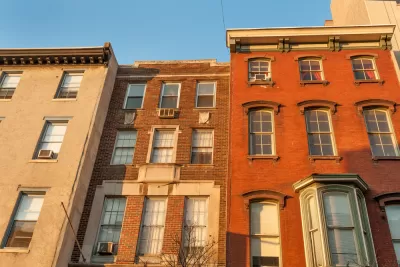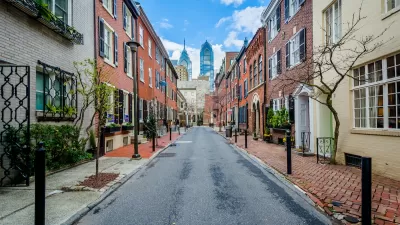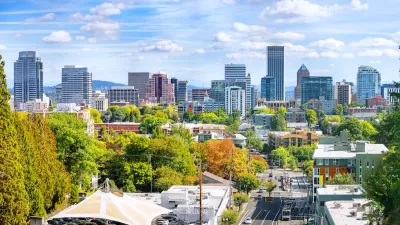Among a package of bills that died in the pocket of Philadelphia Mayor Jim Kenney at the beginning of the New Yer was a bill intended to ensure that developers contribute to communities.

"A bill requiring developers to provide public services and amenities in neighborhoods where they build major projects was passed by [the Philadelphia] City Council on the last day of its four-year term," reported Jake Blumgart in December. By the end of the month, however, the fate of that bill had taken a turn, when Mayor Jim Kenny killed the bill, along with five others, with the power of the pocket veto.
Blumgart also reported the details of this twist in the development plot: "With his first term coming to an end, the mayor Tuesday released a letter to the city’s legislators announcing that he will kill six pieces of legislation via a handy maneuver known as the pocket veto. The opportunity to pull such a move comes only once every four years at the end of a Council term when the sitting mayor can simply decide not to sign bills and, thus, quietly sentence them to death."
Along with the community development agreement requirement, the mayor also killed several other planning- and development-related bills:
An expansion of the homestead exemption that accompanied the recent alteration of the 10-year property tax abatement got canned and two bills that rewrote the city’s zoning rules for Society Hill. Also dead: an unpopular ban on food trucks operating on Market Street between 33rd and 34th Streets in University City.
According to the previous coverage of the development agreement bill, the development agreement requirement was expected to be hard to enforce. "Given the holes in the legislative language and the lack of mandated penalties, the city’s development industry isn’t too worried," wrote Blumgart earlier in the month.
FULL STORY: Mayor expected to sign bill requiring developers give back to Philly communities

Planetizen Federal Action Tracker
A weekly monitor of how Trump’s orders and actions are impacting planners and planning in America.

Chicago’s Ghost Rails
Just beneath the surface of the modern city lie the remnants of its expansive early 20th-century streetcar system.

San Antonio and Austin are Fusing Into one Massive Megaregion
The region spanning the two central Texas cities is growing fast, posing challenges for local infrastructure and water supplies.

Since Zion's Shuttles Went Electric “The Smog is Gone”
Visitors to Zion National Park can enjoy the canyon via the nation’s first fully electric park shuttle system.

Trump Distributing DOT Safety Funds at 1/10 Rate of Biden
Funds for Safe Streets and other transportation safety and equity programs are being held up by administrative reviews and conflicts with the Trump administration’s priorities.

German Cities Subsidize Taxis for Women Amid Wave of Violence
Free or low-cost taxi rides can help women navigate cities more safely, but critics say the programs don't address the root causes of violence against women.
Urban Design for Planners 1: Software Tools
This six-course series explores essential urban design concepts using open source software and equips planners with the tools they need to participate fully in the urban design process.
Planning for Universal Design
Learn the tools for implementing Universal Design in planning regulations.
planning NEXT
Appalachian Highlands Housing Partners
Mpact (founded as Rail~Volution)
City of Camden Redevelopment Agency
City of Astoria
City of Portland
City of Laramie





























